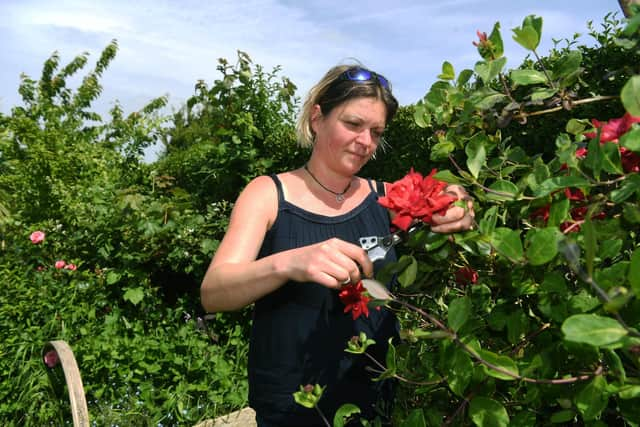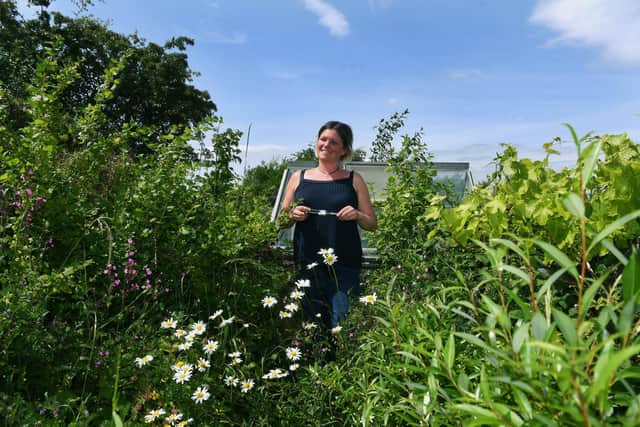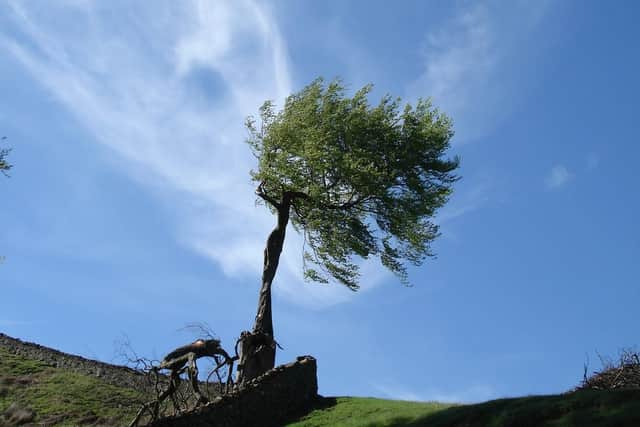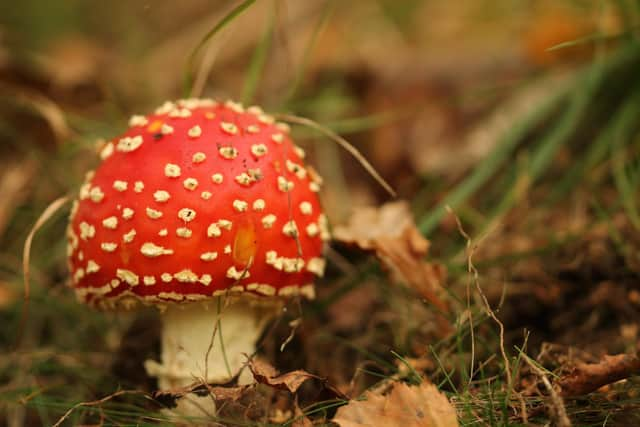The Yorkshirewoman trying to get everyone back to nature no matter where you live
It all began with a childhood drawing of a tree. Helen Rook remembers her sister proudly presenting the artwork to their parents but even at first glance it was immediately obvious that something was wrong. Very wrong. “There were carrots growing on the branches,” says the Bradford-based writer and educationalist. “My parents were horrified and in that moment realised that if one of their children thought that carrots grew on trees they needed to do something about it.
“They got an allotment and after that most weekends we would be up there with them, planting veg, clearing the weeds and without knowing it, learning about the changing seasons.”
Advertisement
Hide AdAdvertisement
Hide AdThat allotment has remained a common theme throughout their lives and when the neighbouring plot became available, Helen began renting that too.


“It’s often where I am at my happiest and it has taught me so much,” she says. “Mum and Dad recently moved to Scarborough, so I now have responsibility for both. I love being up there, it offers a real escape.”
As well as becoming a grow-your-own expert over the years Helen has diversified into natural remedies and bushcraft. Largely self-taught, she has always been keen to share her knowledge with others and when her beloved dog Mia died four years ago she began writing down what she did each weekend as a distraction from the grief.
“When Mia went it left a huge gap in my life,” says Helen. “We used to go everywhere together and anyone who has been through that kind of loss knows just how hard it can be to come to terms with. I needed something to fill my days so as part of the grieving process I began writing. It started really as a personal project, something to give the days a structure.”
Advertisement
Hide AdAdvertisement
Hide AdWhile most people’s weekend journals would be filled with descriptions of household chores and trips to the supermarkets, Helen described the days she made wild pot-pourri, the afternoon she turned teacups into bird feeders and the joy of drinking your own rose-flavoured gin.


“Those were the kind of things I had always done, but the more I began to write, the more I realised that maybe other people might want to have a go too,” she says.
The result is Urban Wild: 52 Ways to Find Wildness on Your Doorstep. Organised month by month, the book is both a reflection on the seasons and a practical guide to getting closer to nature.
There are activities for each week of the year, from something as simple as cloud-gazing to more hands-on tasks such as making mojito jellies and herbal balms. Each one comes with an easy-to-follow step-by-step guide as well as Helen’s own thoughts about everything from the landscape to the weather.
Advertisement
Hide AdAdvertisement
Hide Ad“What I wanted to do is reflect the ebb and flow of the seasons,” she says. “Life moves so fast that often we don’t stop and look around. Each of the tasks is designed to encourage people to do just that.


“Being outdoors is part of who I am, but I realise that I am very lucky. While I live really near to the centre of Bradford, I can also get out into nature really easily. I know that’s not true for a lot of people. However, the book recognises that and it is really designed to show that even when you live in a town or city you don’t have to sacrifice your connection to nature.”
Helen signed her book deal just before the pandemic and she hopes that it will strike a chord with those who found themselves exploring their own neighbourhoods, often for the first time, when all the usual distractions were off limits.
“I remember when the first lockdown restrictions were brought in, I was so relieved that I could still go up to the allotment. No one would want to go through the last two years again but there was a realisation that there was pleasure to be found in the simple things in life.
Advertisement
Hide AdAdvertisement
Hide Ad“At the time a lot of people promised themselves that they would keep doing that daily walk through their local park when the world got back to normal, but finding time can be really hard to do. I guess that’s part of the reason for writing the book – I want to give people a reason to go outdoors.”


While Urban Wild is written for adults, much of Helen’s previous work has been centred on children and young people. In Bradford, she founded one of the country’s first outdoor classrooms designed to engage those who had either been rejected by or dropped out of mainstream education.
“Our current school system ends up making a lot of children feel like failures,” she says. “Some youngsters are simply never going to do well in exams and yet we don’t offer any alternatives for them.
“That’s where the outdoor classroom comes in, it’s a completely different environment which gives people a chance to find what they are good at. It is spread over two acres and for some of the 15 to 18-year-olds who come to us it is completely transformational.
Advertisement
Hide AdAdvertisement
Hide Ad“In Denmark and Norway they have what are known as Folk High Schools which are designed for students who are not academic but who have other skills. It is a fantastic model where creative subjects are really prized and I am really passionate that we need something similar over here.”
Like many, Helen, who is also studying for a masters in applied positive psychology, where her research is focused on the benefits of nature following a bereavement, has become increasingly concerned about the lack of connection with nature.
While she looks back fondly on the endless hours she spent looking after a horse who had been loaned to her by a local Romany and summer holidays to Filey and Cornwall where days were filled with rock pooling and crab fishing, she knows many aren’t so lucky.
“There was a study in 2007 which really highlighted how restricted our experiences of nature have become in just a few decades,” she adds. “It looked at how far eight-year-olds from successive generations of one family had been allowed to roam.
Advertisement
Hide AdAdvertisement
Hide Ad“In 1926, when George Thomas was eight, he walked six miles to his favourite fishing spot without supervision. By 1960, his son-in-law Jack had roamed just one mile to the local woods and 20 years later George’s granddaughter had ventured just half a mile.
“It got worse. In 2007, George’s great-grandson Edward, who was driven to school and taken to a safe place to ride his bike, had been allowed to roam no more than 300 yards.
“That’s a huge social change and we need to address it. I never expected to buy a house in a city, but work and finances meant that’s what happened. However, even in an urban environment you can still connect with nature.
“Often it’s about confidence and about teaching people how to navigate an unfamiliar landscape, whether that be foraging for mushrooms and bushcraft skills or just having the confidence to go for a walk somewhere new and not worry about getting lost.
Advertisement
Hide AdAdvertisement
Hide Ad“That’s what the book is about, it is about saying that the greening of our cities is something we can all be a part of and acknowledging that finding nature in them is vital for our survival.”
Urban Wild: 52 Ways to Find Wildness on Your Doorstep by Helen Rook is published by Bloomsbury Wildlife and is out now in hardback, priced £20.